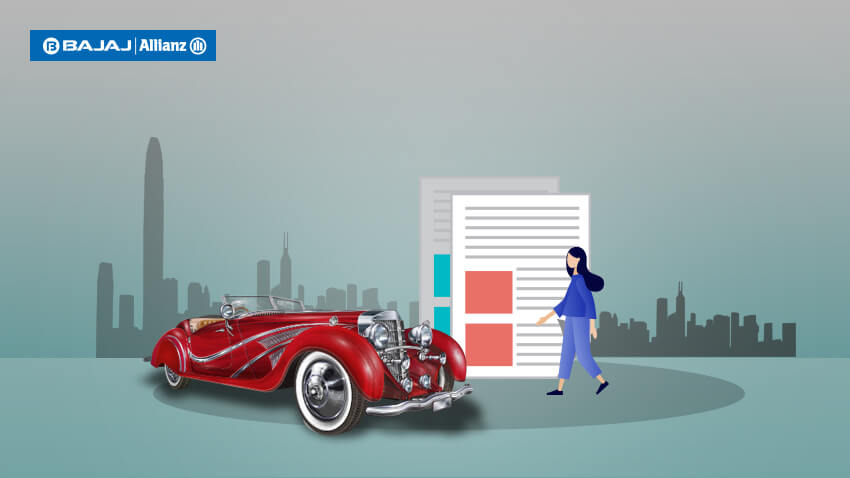Vintage cars have a special place in our hearts. When well-preserved and taken care of, they can be prized possessions that one can take pride in. Lots of people like to have vintage cars in their garage. But as we all know, they require a considerable amount of time and care. It can become a costly hobby to tend to a vintage car or classic car. This is where old
car insurance online comes into the picture. But before that, let us define what vintage cars are -
How are old cars classified?
Not all old cars are classified termed as vintage cars. For it to be classified as vintage, it needs to be certified by the Vintage and Classic Car Club of India (VCCI). Let us look at the different classification for old cars.
Classic Cars: Any car that is manufactured between the 1940s to 1970s is termed as a classic car. Additionally, these vehicles should not be modified, meaning their condition must be as close to the original one which was manufactured. Thus, having old car insurance for your classic car helps you protect and care for them.
Antique Cars: Cars manufactured between 1930 to 1940 are called antique cars. Akin to classic cars, these antique machines also need to be as close to original with little to no modification. Since these cars are seen to age gracefully over the past 90 years, it is essential to insure using car insurance online or offline.
Vintage Cars: Lastly, vintage cars is the general term under which most old cars are colloquially classified. These cars are those where the roots of modern-age performance parts date back to. Generally, cars that are manufactured from 1919 to 1930 are classified as vintage. What you must note is that the valuation for these cars does not change much despite the modification. Since they are rare to find and being in a working condition is only a testimony to the time and engineering marvel. To keep them running, buying car insurance for old cars.
How is premium determined for old car insurance policies?
#1 Age of your old car
The primary factor that has a direct impact on the premium is the age of your car. Unlike
third party car insurance, the premiums for comprehensive policies aren’t regulated by the Insurance Regulatory and Development Authority of India (IRDAI). As age increases, the premium for your policy also increases. The reason is that spares are scarce thereby increasing its price.
#2 Current valuation of the old car
The premiums for vintage cars are determined by a professional valuer. Some insurance companies accept the valuation provided by the VCCI too. Old car insurance does not value vintage cars like ordinary cars as it will not give its true value to the owner.
#3 The expected cost of repairs
The expected repair cost is the next significant factor for determining premium under car insurance for old cars. The repairs for these vehicles require skilled technicians which are rare in the country. Further, the parts required are sometimes required to be imported from the manufacturer directly. These considerations make it an expensive affair to repair these cars. Using an old car insurance policy, these costly expenses can be mitigated by your insurer.
#4 Kilometres Driven
Lastly, vintage cars need to be driven for their spares to keep function smoothly. Thus, the insurance company also checks the kilometres clocked at each renewal date. The higher kilometres are driven, higher will be its upkeep cost.
Understanding these tips will help to avail the best old car insurance suited for your requirements. Selecting an insurance company that gives the closest IDV to the present valuation for your old car will benefit you since the IDV is mutually agreed after five years. Unlike ordinary cars, these cars gain their value over time and are more precious by each passing day. So, avail old car insurance online for your vintage vehicle today!
Know more about
what is IDV in insurance on Bajaj Allianz.
*Standard T&C Apply
*Insurance is the subject matter of solicitation. For more details on benefits, exclusions, limitations, terms and conditions, please read the sales brochure/policy wording carefully before concluding a sale.
 Service Chat: +91 75072 45858
Service Chat: +91 75072 45858


